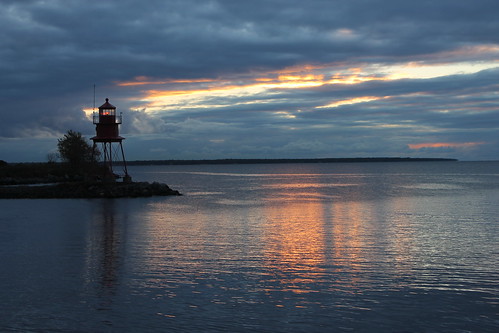According to an article in Broadcasting (May 17, 1943 - page 38), the Adventures in Research program started on January 7, 1942. It originally was a local feature on KDKA (referred in the article as the "KDKA Pet") , but quickly gained a national audience and was carried by 96 stations in 43 states. From the article:
"Adventures in Research has become a "national institution of learning," through the answers to countless commonplace and intricate questions submitted by the radio audience to Dr. Phillips Thomas, veteran engineer of Westinghouse Research Laboratories."
"When the program was introduced it was designed primarily to appeal to adolescents. It was conceived as a practicable supplement to the academic pursuits of youngsters of high school age. But the questions submitted for Dr. Thomas' solution by husbands, wives, and many of advanced learning soon indicated Adventures in Research had attracted a cosmopolitan adult audience."
"Schools in many cities have adopted Adventures in Research as a part of their curriculum. They borrow the weekly transcriptions that the student bodies may assimilate the wealth of worthwhile information."
The series featured short dramatized accounts of great scientists and the inventions they created. Among the many topics covered included George Westinghouse, the typewriter, movies, early radio, and even oil from shale (sound familiar - it was October 29, 1946 - only a few weeks before the episode that we feature today). These dramatized accounts of scientific innovation are quite enjoyable and showcase for the listeners the important role of science and research in everyday life. Dr. Thomas was joined by Paul Shannon, KDKA staff announcer. Phillips Thomas died in 1958 at the age of 75 during an auto accident at Uniontown, Pennsylvania. At that time, the program he created was still being carried over the airways.
In many regards, this series was very similar to The Romance of the Ranchos from the Title and Trust Insurance Company of Los Angeles as well as Cavalcade of America, which was featured earlier in this series with the story of Ida Lewis (The Woman on Lime Rock) from DuPont. There will be more features from that series in the upcoming weeks.
Alpena Light (Alpena, Michigan) - Sunrise on October 10, 2014
The episode that was focused on lighthouses is from November 26, 1946 and tells the story of Gustaf Dalén (sometimes listed as Gustav Dalen). Regardless of how you spell it - Gustaf Dalén led a remarkable life and was very important to the history of lighthouses. He invented the Dalén light, an automated lighthouse that involved burning of acetylene gas and a solar sensor which started the light at sunset and stopped it at daybreak. Pretty amazing technology for the early 20th Century.
While always being interested in inventing, Dalén and his wife lamented the need to protect ships on the waters. Lighthouses located all over the shoreline would be what is needed - but what country could afford that? Who could hire all the lighthouse keepers for that great work? With this premise, he set out to try and invent a system for lighting beacons and lighthouses that could be done automatically.
From the Nobel Prize site:
"In 1901, Dalén's company purchased the patent rights of the French invention of dissolved acetylene and he began his work on automatic flashing beacons for lighthouses. His subsequent invention of the sun-valve, which causes a beacon to light automatically at dusk and extinguish itself at dawn, enabled lighthouses to function perfectly and unattended for periods of up to a year. His invention of cylinder filled with a porous mass of asbestos and diatomaceous earth for storage of acetylene reduced considerably the hazards in handling this material and its use in welding became safe. He also invented a mixer for providing a constant and correct balance of gas and air for use in the incandescent mantle and a device for removing broken mantles and replacing them by new ones."
In 1912, Dalén suffered a tremendous accident caused by an acetylene gas explosion while they were testing in an outdoor location. Dalén lost his eyesight in the accident. Later that year, he was awarded the 1912 Nobel Prize in Physics, though he was not well enough to accept the award in person. He eventually recovered and returned to work as the president of AGA, a position he held until his death in 1937.
Adventures in Research - Gustaf Dalén (Gustav Dalen) - November 26, 1946
Please enjoy these great episodes. This is a real treat and a great way to continue my Lighthouse Old Time Radio series. I will have another entry in about a week!
Here are some links to programs relating to Old Time Radio and Adventures in Research:
- Adventures in Research episodes via the Internet Archive
- Adventures in Research on Jerry Haendiges Vintage Radio Logs
- Adventures in Research entry from RadioGOLDINdex
- Adventures in Research entry from OTRCAT.com
- Gustaf Dalén Biography from the Nobel Prize site
- Gustaf Dalén Biography from the Wikipedia
- AGA (Linde Group) Company History - Gustaf Dalén was a prominent engineer and president
- Greg Bell's Old time radio channel (#82)
- All Corey's Old Time Radio blog posts
- Corey's Lighthouse pictures on flickr
Lighthouses on Old Time Radio:
- All Lighthouse Entries
- Seascape from The Whistler (1945)
- The Sinister Lighthouse from This is Your FBI (1946)
- The Woman on Lime Rock from The Cavalcade of America (1947)
- Boston Blackie's Lighthouse Ghost (1947)
- Captain January on Lux Radio Theater (1941 & 1946)
- Lighthouse Twelve from John Steele, Adventurer (1949)
- Gustav Dahlen Bio on Adventures in Research (1946)

No comments:
Post a Comment